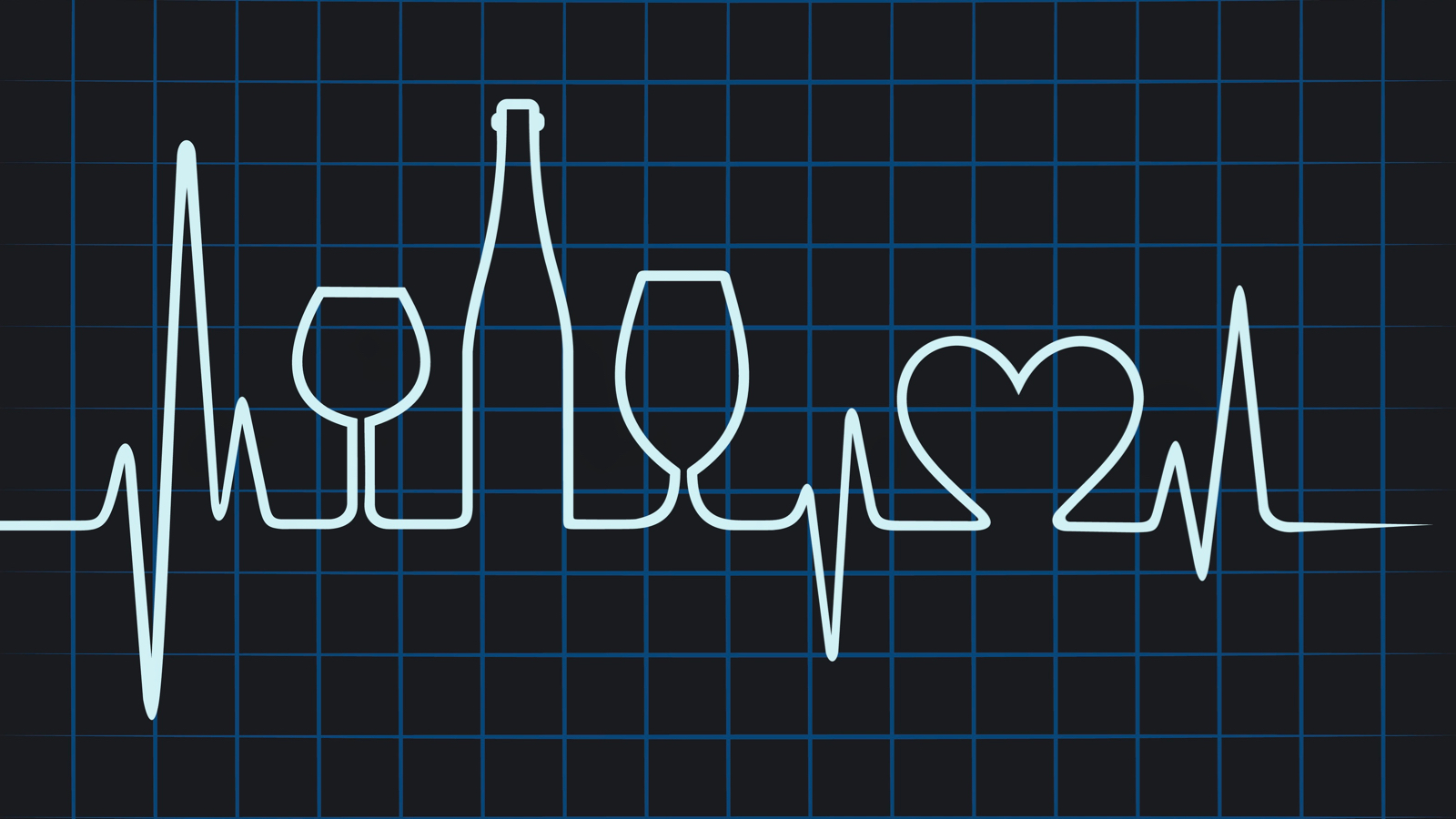Health Watch: Research Looks at Wine’s Benefits for the Heart and Mind
A scientist tests a new, vinous heart-disease treatment; two studies reveal that grape compounds’ anti-inflammatory properties can help the brain

We know that the antioxidants found in red wine are good for heart health, but what if in addition to helping prevent heart disease, they can actually be used to treat it? Dr. Tammy Dugas, a professor at Louisiana State University’s Department of Comparative Biomedical Sciences, is working to do just that.
Heart disease—the leading cause of death in the United States, according to the Centers for Disease Control and Prevention (CDC)—is often treated with a common procedure known as coronary angioplasty, in which a small balloon is inserted into a blocked or narrow artery in order to widen it and allow blood to flow to the heart, thus decreasing the risk of heart attack or stroke. Typically, patients will also have a wire mesh tube, called a stent, inserted to support the blood vessel. In order to keep new cells from growing around the stents and blocking the artery again, some stents are designed to release chemotherapy agents. The problem is that these agents can cause the artery to narrow again.
To mitigate this risk, Dugas and her team are developing a new kind of stent that releases natural compounds known to promote healing and prevent blood clotting and inflammation: resveratrol and quercetin, two antioxidants found in red wine. Dugas, who is also a cofounder of ReQuisite Biomedical, the company working to produce these stents, says that the combination of resveratrol and quercetin could prevent excess tissue from building up and also keep the blood vessel from narrowing again as it heals.
In addition to the modified stents, the researchers are developing a balloon coated with the same compounds to treat peripheral artery disease, which restricts blood flow to the kidneys, arms, legs or stomach. This could help treat arteries that are difficult to target with traditional angioplasty procedures. Both products are still in development.
Grape Compounds Could Help with Depression
Two lesser-known grape compounds could help treat and defend against stress-induced depression. In a study published online in Nature Communications, researchers from the Icahn School of Medicine at Mount Sinai Hospital in New York found that dihydrocaffeic acid (DHCA) and malvidin-3’-O-glucoside (mal-gluc), both of which are nutrients found in grapes, mitigated stress-induced depression in mice by targeting newly discovered mechanisms of the disease.
The study’s text argues that low response rates associated with current popular antidepressants—not to mention their wide range of side effects—indicates a need for new therapeutic treatments that address depression’s underlying causes. Depression, which acutely affects around 16 million people in the United States each year, according to the CDC, is associated with a variety of mechanisms, including an increase in peripheral inflammation of the brain, as well as abnormalities in the brain’s synapses, the structures that allow neurons to pass signals to other neurons.
Previously, resveratrol has been shown to reduce stress-related inflammation of the brain. Now, this study has found that DHCA is also able to regulate inflammation, while mal-gluc was shown to influence the expression of genes responsible for synaptic plasticity (basically, the ability for synapses to strengthen or weaken). The researchers also showed that a treatment using a combination of DHCA and mal-gluc was able to lessen depressionlike behavior in mice that were susceptible to stress.
“Our approach to use a combination treatment of DHCA and mal-gluc to simultaneously inhibit peripheral inflammation and modulate synaptic plasticity in the brain works synergistically to optimize resilience against chronic stress-induced depressionlike phenotypes,” Dr. Giulio Maria Pasinetti, lead researcher and professor of neurology at Mount Sinai, said in a statement. “The discovery of these new, natural grape-derived phytochemicals … may provide an effective way to treat a subset of people with depression and anxiety, a condition that affects so many people.”
More Good News for Your Mind: Moderate Drinking Might Help “Clean” the Brain
A report from the University of Rochester Medical Center (URMC) finds that a glass of wine might help “clean” the brain of waste, including toxins associated with Alzheimer’s disease and other forms of dementia.
The study, published in the journal Scientific Reports, focuses on the brain’s glymphatic system, a recently discovered pathway for clearing waste from the brain’s central nervous system. Researchers tested the effects of varying levels of alcohol intake, consumed either on specific occasions or regularly over the course of 30 days, on the glymphatic function of mice, measured by levels of inflammation, particularly in astrocytes, cells that are key regulators of the glymphatic system.
Mice that consumed low levels of alcohol—equivalent to approximately two and a half drinks per day for humans—displayed less inflammation in the brain and better glymphatic function compared with control mice that were not exposed to alcohol. On the other hand, high doses of alcohol appeared to have adverse effects on the test subjects.
“The data on the effects of alcohol on the glymphatic system seemingly matches the J-shaped model relating to the dose effects of alcohol on general health and mortality, whereby low doses of alcohol are beneficial, while excessive consumption is detrimental to overall health,” Dr. Maiken Nedergaard, codirector of the Center for Translational Neuromedicine at URMC and lead author of the study, said in a press release about the new research. “Studies have shown that low-to-moderate alcohol intake is associated with a lesser risk of dementia, while heavy drinking for many years confers an increased risk of cognitive decline. This study may help explain why this occurs.”
Of course, it’s difficult to know whether a study that’s performed on animals would have the same results for humans, but testing these beneficial properties of moderate drinking is a step toward understanding how wine affects our daily lives.
Discover more from ReviewFitHealth.com
Subscribe to get the latest posts sent to your email.